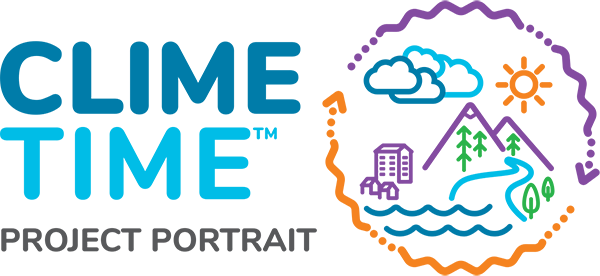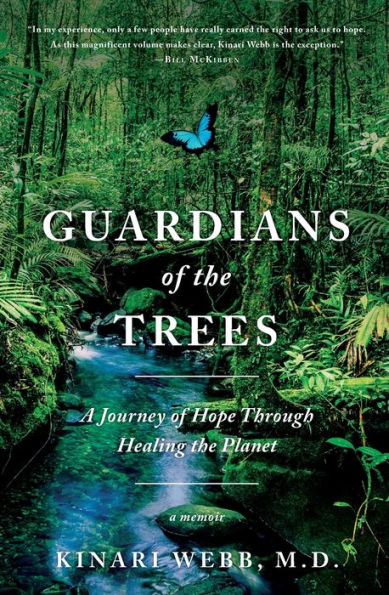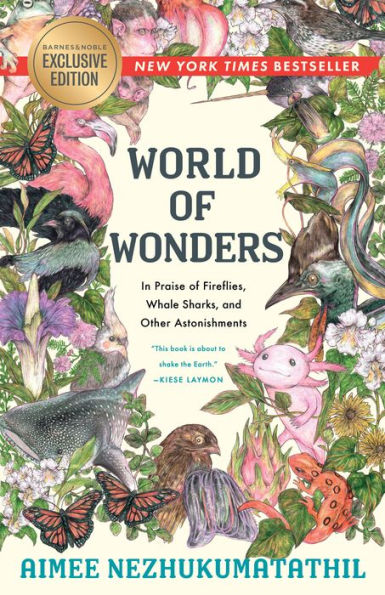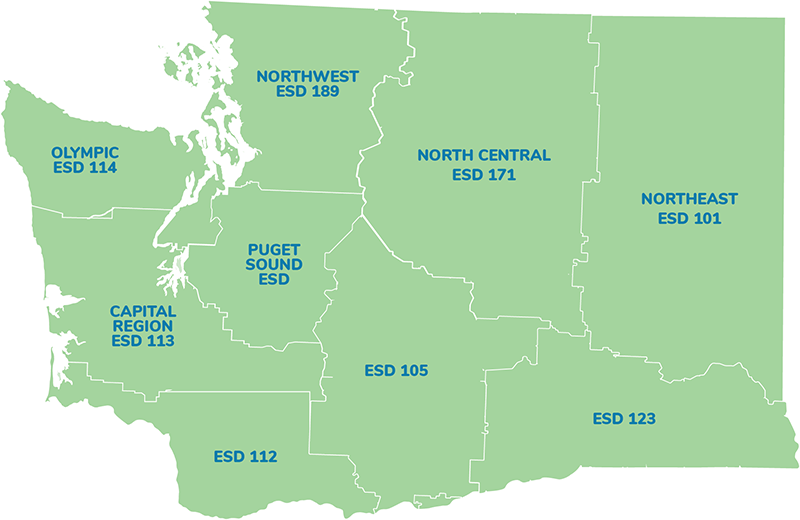Climate Educator Book Club
ANCHORING DISCUSSIONS ABOUT WHAT CLIMATE LEARNING LOOKS LIKE

Overview
The Climate Educator Book Club’s book study is designed to flexibly support teams of interdisciplinary K–12 educators from schools and districts across Washington in exploring ways to integrate climate learning into their classrooms meaningfully for their community. This year-long professional learning opportunity provided free books and up to 15 (6 STEM and 9 Equity) clock hours at no charge.
What We Did
 For the 2023-2024 school year, OSPI purchased copies of twelve different climate and sustainability-related book titles for educator teams to choose from and receive at no cost. Educators were encouraged to form their own interdisciplinary teams, and OSPI helped connect educators who needed help finding a team. By the end of the inaugural book study, there were almost 30 teams consisting of over 110 educators. Teams were diverse in size and relationships, including groups such as grade-level teams, like the kindergarten team from Northern Heights Elementary in Bellingham, to a majority of the staff in Reardan School District, a rural district in eastern Washington.
For the 2023-2024 school year, OSPI purchased copies of twelve different climate and sustainability-related book titles for educator teams to choose from and receive at no cost. Educators were encouraged to form their own interdisciplinary teams, and OSPI helped connect educators who needed help finding a team. By the end of the inaugural book study, there were almost 30 teams consisting of over 110 educators. Teams were diverse in size and relationships, including groups such as grade-level teams, like the kindergarten team from Northern Heights Elementary in Bellingham, to a majority of the staff in Reardan School District, a rural district in eastern Washington.
During the year-long program, there were three synchronous, whole-group sessions where educators earned STEM clock hours. Dr. Mark Windschitl (UW Professor and author of the new book “Teaching Climate Change”), Annie Doubleday (Ambient Air Quality Epidemiologist, Washington State Department of Health) Eliza Ghitis (Climate Change Scientists, Northwest Indian Fisheries Commission), and Hanna Brush (Field Biologist, Suquamish Tribe Natural Resources) provided resources for educators in the first two sessions. The third session allowed each team to share “big takeaways” they had from the book study and the connections they made to their school and community as they worked their way through the book study.
To earn Equity clock hours, educators met with their team at a time and style that worked best for their situation. Before this one-hour-long discussion, they answered equity-related questions to help them connect their reading with their school and community. After their discussion, educators reflected on how their reading and discussion could shape their instruction to meet their classroom’s diverse needs. Educators then shared some of their thinking with the whole group by posting and replying to their peers on Canvas.
To see all materials for the book club, please visit:
https://oercommons.org/courseware/lesson/113943
What We Learned
 Anchoring discussions about what climate learning looks like in schools and communities across Washington through climate and sustainability-focused books provided educators from all content areas with a concrete way to talk about these important ideas. Not only did each team end stronger in their thinking about climate learning in their classrooms and schools, but the entire cohort of educators who participated were able to connect the learning and ideas from their different readings to their students, schools, and communities. This larger community allowed them to build relationships with educators across the state and grow ideas and their support networks.
Anchoring discussions about what climate learning looks like in schools and communities across Washington through climate and sustainability-focused books provided educators from all content areas with a concrete way to talk about these important ideas. Not only did each team end stronger in their thinking about climate learning in their classrooms and schools, but the entire cohort of educators who participated were able to connect the learning and ideas from their different readings to their students, schools, and communities. This larger community allowed them to build relationships with educators across the state and grow ideas and their support networks.
Climate learning is not just for science classrooms. No matter what subject area or grade level anyone taught, everyone who participated found at least one way to connect their reading and learning to their school and community. Educators also loved the flexibility and choice given to them with this book study, and we plan to continue the book study for the 2024-2025 school year with some old favorites and new, exciting titles.

Project Reach
Teams
Educators
Feedback
We want to find more ways to bring storytelling, especially local storytelling, into our classrooms.
Contact
For more information contact:
lori.henrickson@k12.wa.us
